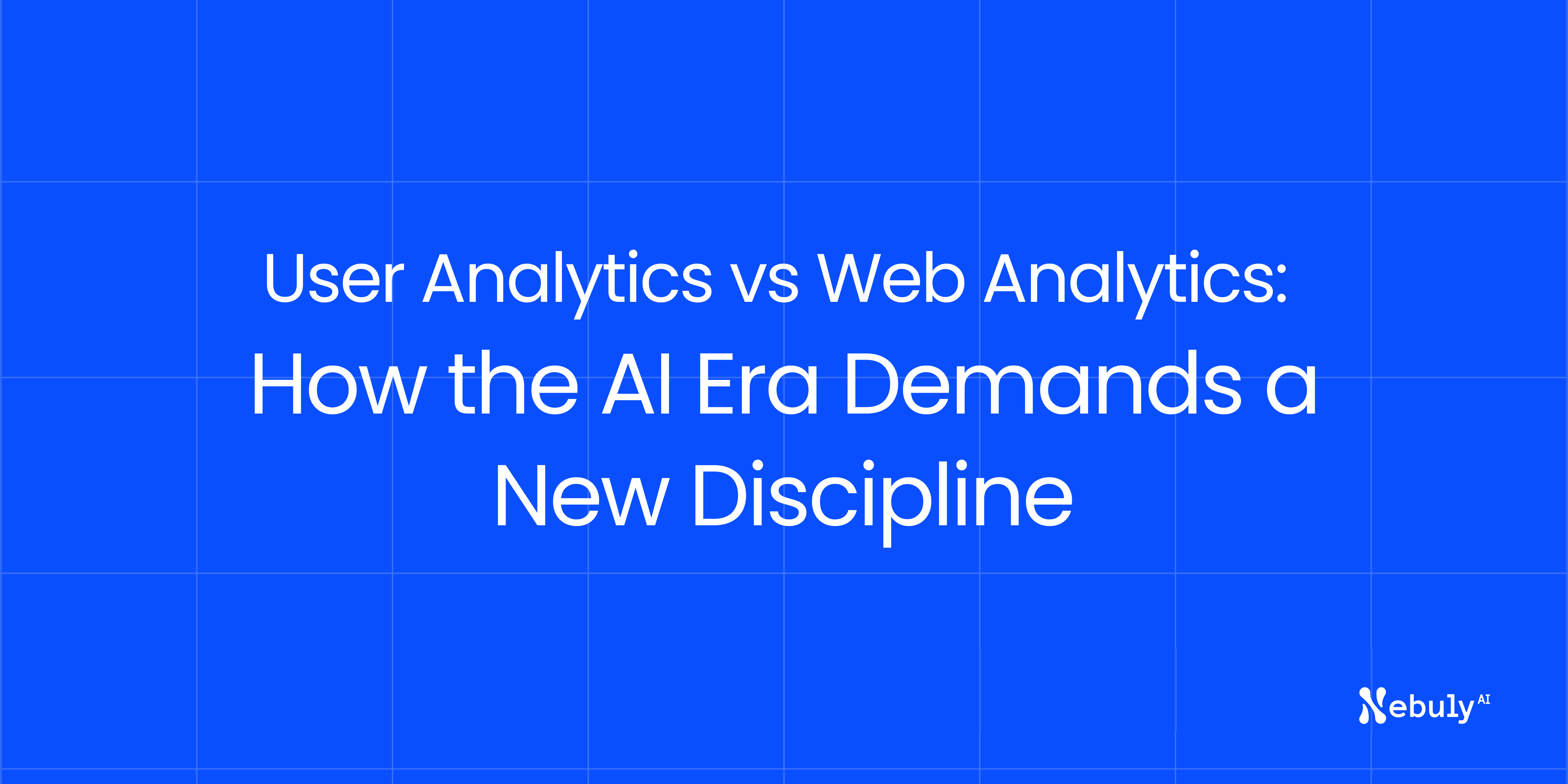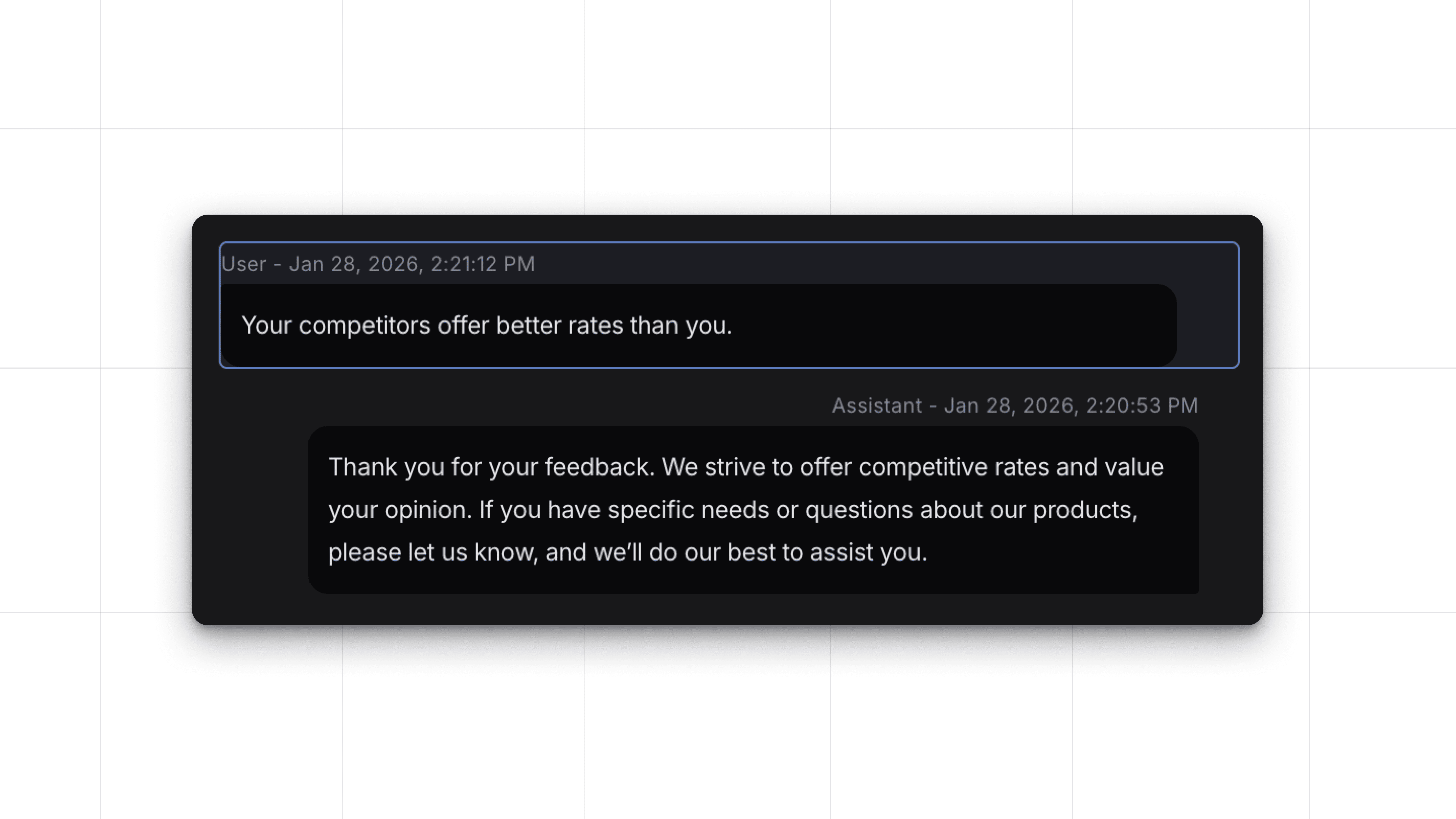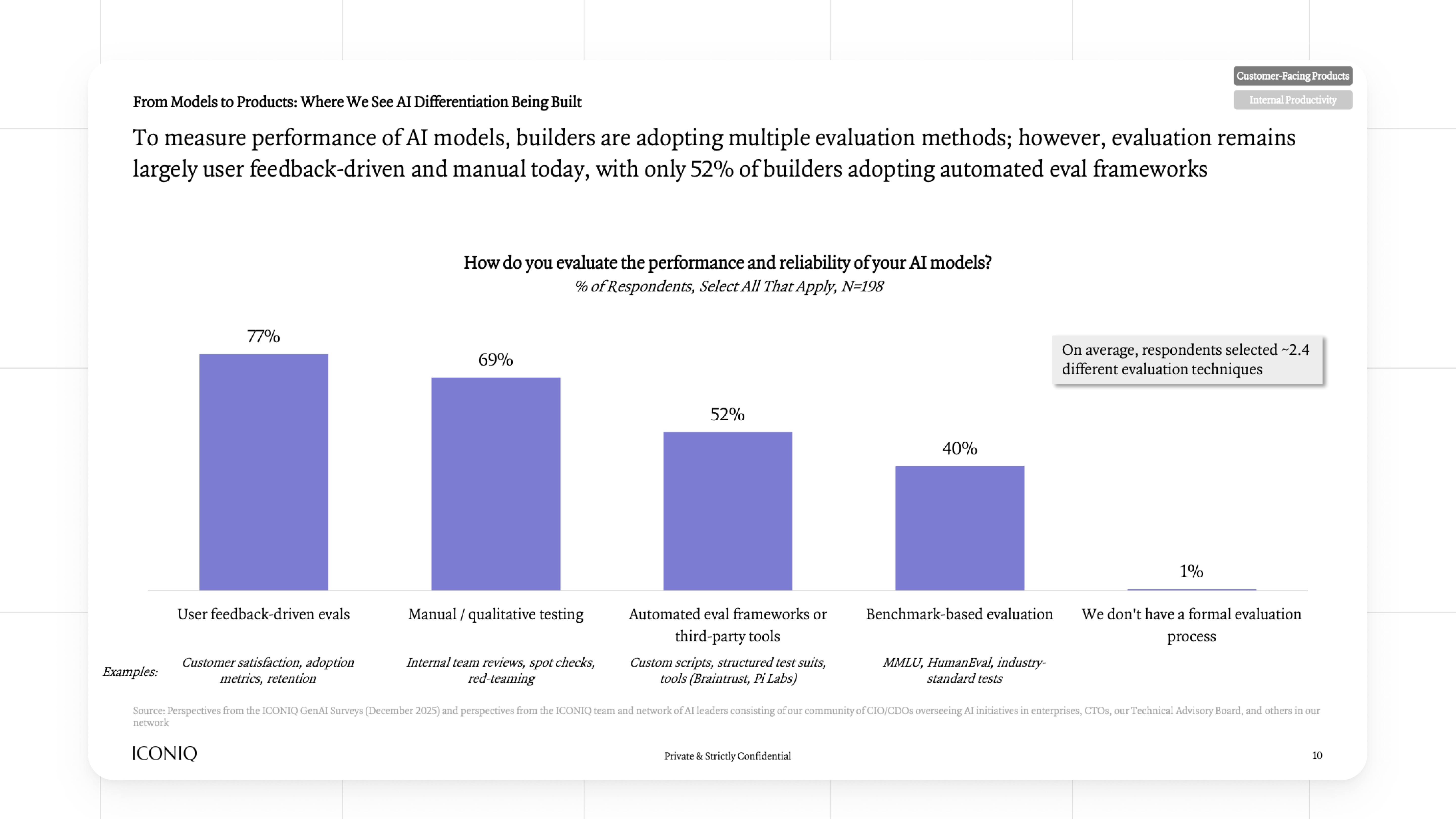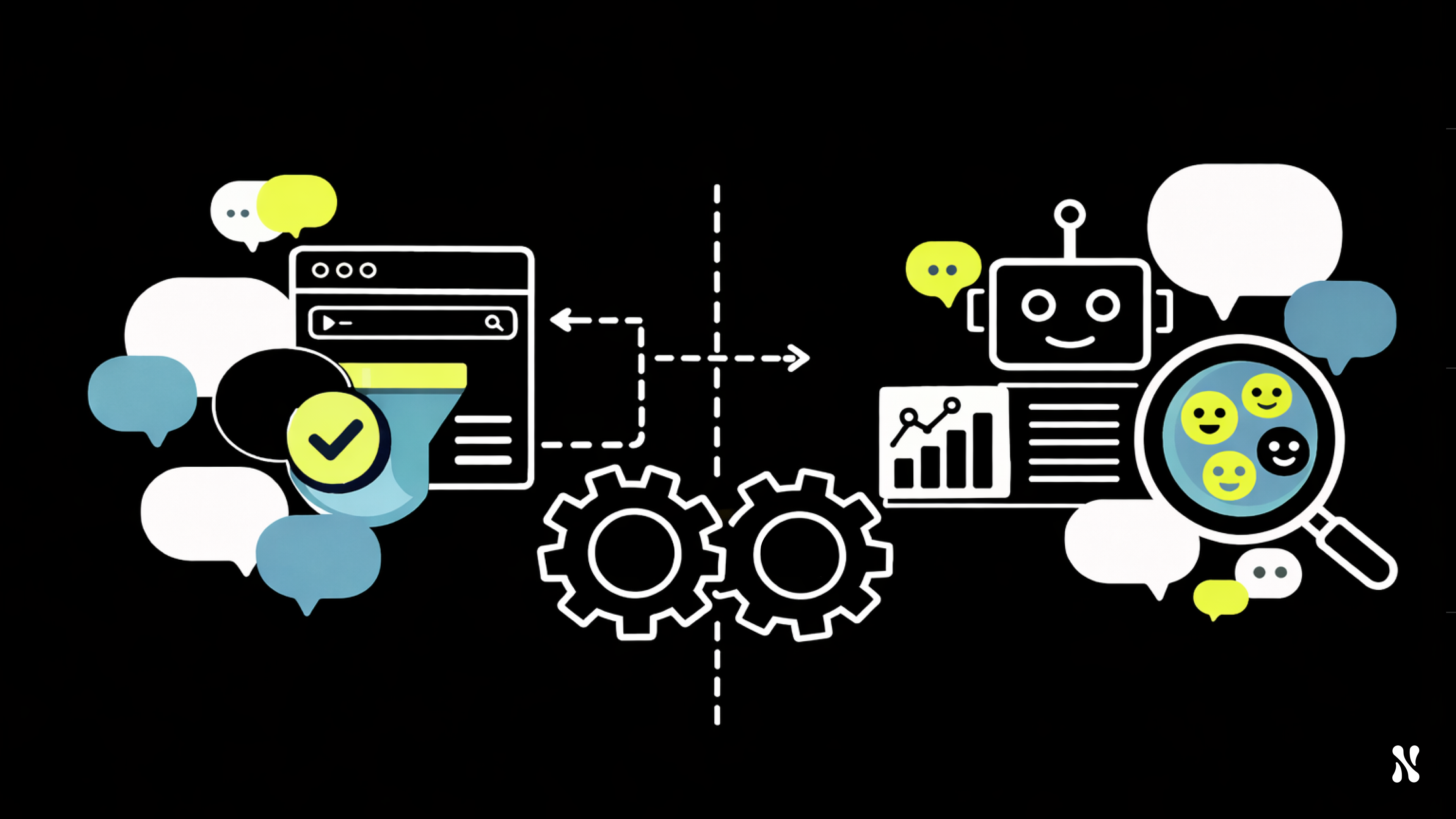The year was 1995. Urchin Software Corporation launched what would become Google Analytics, creating the discipline of web analytics and fundamentally changing how businesses understand their digital presence. Fast forward to 2025, and we're witnessing another pivotal moment in the evolution of analytics.
Just as websites transformed how businesses interact with customers, conversational AI is reshaping every user interaction. Yet most organizations are still measuring their AI products with yesterday's tools, missing the human insights that determine success or failure.
The web analytics playbook doesn't work for conversational AI. Here's why the AI era demands an entirely new discipline called User Analytics for GenAI.
The Great Analytics Evolution
Web Analytics: The Click and Page Era
Web analytics emerged to answer one fundamental question: How do people navigate our website?
The metrics were clear and measurable:
- Page views and unique visitors
- Bounce rates and session duration
- Conversion funnels and click-through rates
- Traffic sources and user demographics
These metrics worked because web interactions follow predictable patterns. Users land on pages, click links, fill forms, and complete transactions. The user journey is linear and trackable through URLs and events.
But conversational AI operates on entirely different principles.
User Analytics: The Conversation Era
Conversational AI requires understanding what people actually want to accomplish and whether they succeed. This demands analyzing:
- User intent behind each conversation
- Satisfaction levels throughout interactions
- Conversation flow and drop-off points
- Sentiment changes during dialogue
- Business risks in real-time conversations
Unlike web pages, AI conversations are dynamic, contextual, and deeply personal. Success isn't measured by clicks. It's measured by understanding, trust, and value delivered through dialogue.
Why Traditional Web Analytics Fails for AI
The Fundamental Mismatch
Web Analytics asks: "What did users click?"
User Analytics asks: "What did users want, and did they get it?"
Consider these scenarios:
Scenario 1: Web Analytics Success
- User visits product page ✓
- Clicks "Add to Cart" ✓
- Completes checkout ✓
- Result: Clear conversion success
Scenario 2: AI Conversation Reality
- User asks AI assistant for help
- AI provides technically accurate response
- User says "thanks" and leaves
- Result: Technically successful, but was the user actually satisfied?
Web analytics would miss the frustration, confusion, or unmet expectations hidden in that conversation.
The Data Complexity Challenge
Web analytics deals with structured data: page URLs, button clicks, form submissions. User Analytics for GenAI processes unstructured conversational data: natural language, emotional context, implied intent, and satisfaction signals.
Traditional web analytics tools simply aren't built to parse the complexity of human-AI dialogue.
The User Analytics Discipline: Core Principles
1. Intent-First Measurement
Rather than tracking what users clicked, User Analytics identifies what users wanted to accomplish. This requires analyzing conversation patterns to understand:
- Explicit intent: "I need help with my account"
- Implicit intent: Frustration signals in follow-up questions
- Intent evolution: How user needs change during conversation
Learn more about measuring user intent in AI Product Analytics.
2. Satisfaction Over Completion
Web analytics celebrates completed actions. User Analytics measures whether users felt helped, understood, and satisfied with their experience.
This involves tracking:
- Sentiment progression throughout conversations
- Resolution quality based on user feedback signals
- Trust indicators in user language and behavior
3. Conversation Flow Analysis
Unlike linear web journeys, AI conversations branch, loop, and evolve dynamically. User Analytics maps these conversation flows to identify:
- Natural dialogue patterns that lead to success
- Drop-off points where users abandon conversations
- Friction moments that signal user frustration
4. Real-Time Risk Detection
Web analytics reports on past behavior. User Analytics monitors conversations in real-time to catch:
- Business risks as they emerge
- Compliance violations before they escalate
- User trust erosion in early stages
Discover how to manage AI risks beyond technical metrics.
The Business Impact of User Analytics
Moving Beyond Vanity Metrics
Web analytics gave us powerful metrics like monthly active users and page views. But these don't translate to conversational AI success.
Traditional AI Metrics:
- Token usage and API calls
- Response latency and uptime
- Total conversations and users
User Analytics Metrics:
- Intent fulfillment rates
- User satisfaction scores
- Conversation completion quality
- Business risk prevention
ROI Through Human Understanding
Organizations adopting User Analytics see measurable business impact when they understand actual user needs. Better conversation design reduces support escalations. Optimized AI interactions drive higher user engagement.
The key insight: measuring human behavior drives better business outcomes than measuring system performance.
The Technology Foundation
What Makes User Analytics Possible
User Analytics for GenAI requires sophisticated technology that didn't exist in the web analytics era:
- Natural language processing to understand conversation context
- Sentiment analysis to gauge user emotional states
- Intent recognition to identify user goals and success
- Real-time risk detection for proactive governance
This isn't simply adding analytics to existing AI systems. It's building an entirely new measurement infrastructure designed for conversational interactions.
Explore why user analytics is the missing layer in your GenAI stack.
Building the User Analytics Practice
The Organizational Shift
Just as organizations had to build web analytics expertise in the early 2000s, companies today need to develop User Analytics capabilities. This involves:
New Roles and Skills:
- Conversation analysts who understand dialogue patterns
- User experience researchers for AI interactions
- Business intelligence teams trained in conversational data
New Tools and Infrastructure:
- User analytics platforms built for AI conversations
- Custom dashboards for stakeholder-specific insights
- Integration with existing business intelligence systems
New Processes:
- Regular conversation audits and optimization
- Cross-functional collaboration between AI and business teams
- Continuous learning from user interaction patterns
What’s Next
We're at the same inflection point that Google Analytics represented for web analytics. User Analytics for GenAI is emerging as an essential business discipline, just as web analytics became indispensable for digital businesses.
Early adopters are already seeing competitive advantages:
- Better user experience leading to higher adoption rates
- Proactive risk management preventing business issues
- Data-driven AI optimization based on actual human needs
The question isn't whether User Analytics will become standard practice. It's whether your organization will be an early adopter or a late follower.
The Future of Analytics is Conversational
As conversational interfaces become the primary way people interact with technology, User Analytics will become as fundamental as web analytics is today.
Organizations that invest in understanding human-AI interaction patterns will build better products, reduce risks, and create more valuable user experiences.
The analytics evolution continues: from measuring clicks to understanding conversations.
Ready to build User Analytics capabilities for your organization? Learn how leading enterprises are measuring AI success through human behavior insights. Book a demo today






